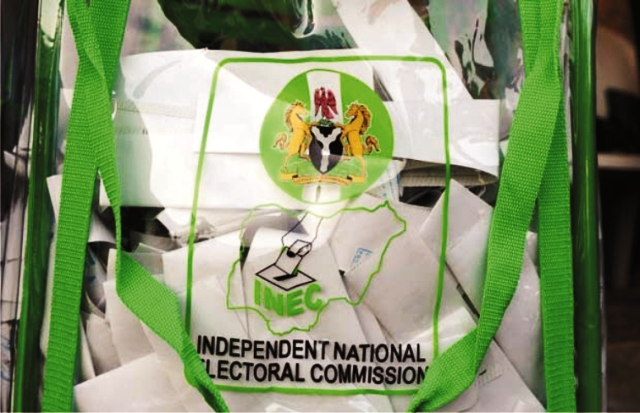Editorial
Before The Rescheduled Re-Run

Resident Electoral Commissioner of the
Independent National Electoral
Commission (INEC) in Rivers State, Elder Aniedi A. Ikoiwak got a number of people thinking when he blamed the suspension and cancellation of elections in some Wards and local government areas in the State on politicians.
Ikoiwak who was speaking at a consultative meeting with critical stakeholders and representatives of 28 political parties in Port Harcourt a couple of days ago actually stated that some politicians did not allow INEC to perform its duties and that the meeting was to find out if the politicians were ready for the conclusion of the remaining elections.
On their face value, both the initiative for the meeting and the comments will be considered fit and proper for progress, but how that reassures Rivers people of the level of preparedness of INEC for the next round of elections is worrisome.
While the meeting only succeeded in announcing a tentative date for the rerun that could hold on or before July 31, 2016, INEC goofed when it saw no wrong in what it did or failed to do during the last elections, including the first rerun.
The Tide thinks that INEC owes the government and the good people of Rivers State an apology. The INEC in Rivers State cannot explain why it has taken eternity to resolve simple challenges in mere legislative elections that had denied Rivers State representation in the Senate for so many months.
There is no reason going to ask the same politicians they have blamed for all the problems to decide whether or not the rescheduled elections should hold, when many Rivers seats in the House of Representatives are vacant. Certainly, not when seats in the Rivers State House of Assembly also remain vacant.
Also troublesome is the claim that some politicians did not allow INEC to do its work without naming such politicians or presenting them for prosecution for obstructing electoral duties or elections. But the resort to blame and cry presents INEC as weak and unprepared to deal with lawless politicians in Rivers State.
The Tide believes that if there is any agency politicians should respect, even fear, it is the INEC. This is because only the INEC reserves the power to register and manage the political parties, clear candidates, declare election results or cancel some according to law. It is therefore absurd that politics and politicians would now rule the INEC with all the claim of being independent.
Until the present regime, the phrase ‘inconclusive election’ was non-existent in the dictionary of INEC. Until now, the directive whether to declare a result, cancel an election or reschedule a re-run did not have to come from ‘above.’ INEC will not beg or obtain clearance from any politician to do a re-run that is known to have been done in intervals of weeks before this time.
As a matter of fact, we had expected that before going into the next elections, INEC will not only convince the people why it declared the elections inconclusive. We expected that, INEC will point out electoral discrepancies or malpractices and the persons or parties behind such glaring impunities so as to discourage a re-occurrence.
Indeed, INEC needed to own up its own failures and proffer ways of addressing them. But to assume that all the ills of the last elections have gone away with the wind is to tell oneself a lie. In fact, the failure to invoke provisions of the electoral law against erring officials, politicians, voters and security agents in elections that are adjudged to be chaotic is an invitation to anarchy.
As unbiased umpires, we noted the late arrival of materials to many polling stations; in fact, in some places materials presented were fake as in DELGA or without result sheets as in Eleme. In some places, INEC’s staff did not show up at all, while some politicians moved freely to different polling stations across the State and openly influenced voting against the law.
Because these politicians who brought in their own soldiers from outside Rivers State are above the law, it was also okay to physically attack and detain functionaries of the Rivers State Government. After all those, what did INEC do? Nothing! Even those who died, did so for nothing.
INEC cannot pretend not to see or know all these and know what to do to restore confidence and order. INEC cannot play the weakling under a political climate where persons who are barbaric, sick and taking electoral victory as the end, have decided either to take power or take total power. It is expected that INEC will up its game.
On the whole, let the ills of the last polls be seen to be addressed to make the next election in Rivers orderly and safe. Let INEC warn stakeholders of the possible consequences of any misadventure during the next election and be duty bound to implement same impartially as a good umpire.
Editorial
As NDG Ends Season 2

Editorial
Beginning A New Dawn At RSNC

Editorial
Sustaining OBALGA’s Ban On Street Trading

-
Maritime4 days ago
Nigeria To Pilot Regional Fishing Vessels Register In Gulf Of Guinea —Oyetola
-

 Sports4 days ago
Sports4 days agoGombe-Gara Rejects Chelle $130,000 monthly salary
-
Maritime4 days ago
Customs Declares War Against Narcotics Baron At Idiroko Border
-

 Sports4 days ago
Sports4 days agoTEAM RIVERS SET TO WIN 4×400 ” MORROW” …Wins Triple jump Silver
-
Maritime4 days ago
NIMASA,NAF Boost Unmanned Aerial Surveillance For Maritime Security
-

 Sports4 days ago
Sports4 days agoNPFL Drops To 91st In Global League Rankings
-

 Sports4 days ago
Sports4 days agoNIGER DELTA GAMES PANACEA TO YOUTH DEV”
-

 Sports4 days ago
Sports4 days agoNPFL Impose Fines On Kwara United Over Fans Misconduct

